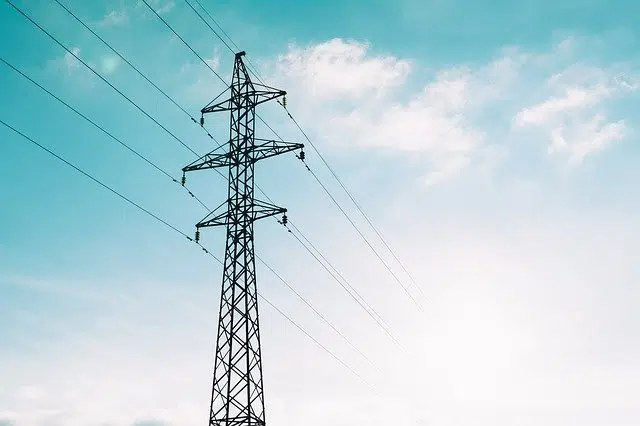
Electrical voltage reflects the difference in the electrical potential of two points.
Tension is a concept with several uses, whose etymological origin is found in the Latin word tensĭo . The first meaning recognized by the dictionary of the Royal Spanish Academy ( RAE ) refers to the situation of a body that is in the midst of the influence of opposing forces that exert attraction on it.
In this sense, it is possible to find different kinds of tension. Electrical tension , known as voltage , is the magnitude that reveals the difference that exists in the electrical potential of two points. The unit of measurement for this voltage is called the volt .
Another name for electric tension is potential difference , and we can also define it as the work per unit of charge exerted by an electric field on a charged particle, to move it from a certain position to another. Let us not forget that in the field of physics, the term "work" is defined as that which modifies the state of movement of a body.
The steam tension
Vapor tension , for its part, is the pressure exerted by the gas phase on the liquid state at a certain temperature at which both phases (gas and liquid) are in dynamic equilibrium .
In other words, vapor tension provides information about the tendency of a given liquid to evaporate . Given a specific example, it is correct to say that the vapor tension value of the boiling temperature is equivalent to that of the ambient pressure. For fuels, this concept is very important, since it has a considerable impact on the quality of carburetion, the probability of vapor lock forming (a problem that occurs when liquid fuel turns into a gaseous state within the feeding system) and in the possibility of starting the vehicle at low temperatures.
Blood pressure
The concept of blood pressure is linked to the resistance exerted by blood vessels to the pressure generated by circulating blood. This tension is possible since the vessels have elastic walls.
When blood pressure is above the levels tolerated by the arteries, damage of varying severity arises, such as hypertension , a disease that affects millions of people. Since hypertension does not present clear symptoms, its diagnosis is usually accidental, something that increases the risk of the disorders that it can lead to if it is not treated in time, including stroke, heart failure and myocardial infarction .

Tension can be associated with stress or nervousness.
Tension as nervousness
The idea of tension is also used as a synonym for nervousness , stress or anxiety . In general, we speak of tension when there is a confrontation or opposing positions between individuals or groups. The notion can also refer to the altered state of a person. For example: "Tension in access to the stadium: the supporters of the local team await the arrival of the visitors" , "There were moments of tension when a journalist consulted the candidate about his alleged participation in an act of corruption" , "I can't stand plus the tension: when will grandfather come out of the operating room? .
Just as it happens with bodies in physics, tension is resolved with relaxation , even when the most symbolic meanings of these terms are taken, explained in the previous paragraph. Both the wait of the visitors, as well as the seconds before the politician's response or the eternal operation of the man generate nervousness and a state of anxiety that can sometimes affect breathing or alter some of the senses. Once the stage of tension is overcome, relaxation comes, although recovering the state prior to discomfort is not always easy or immediate.
